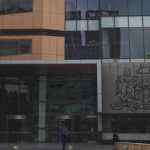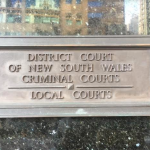Embracing New Technology Could Reduce Court Delays

New South Wales Courts are back in swing, and jury trials in the District Court have recommenced, now that the most acute threat of COVID-19 spreading has subsided.
In March, when the threat of COVID-19 was just beginning to hit Australian shores, the New South Wales Courts had to seriously rethink the way they were able to operate.
With thousands of people coming in and out of courts around New South Wales, each day, and with some locked in court rooms for days during trials, the threat of potential virus transmission was deemed too great for the courts to stay open for ‘business as usual’.
Embracing technology
During lockdowns, courts dealt with urgent cases using virtual technology. Other matters were dealt with via emails and text message or teleconferencing so that those who needed access to the justice system, or had matters currently before the court could have them dealt with as soon as possible.
The use of technology has been successful for directions hearings, appeals and bail applications, allowing about 500 matters a week to be heard And in fact, the District Court was able to still deliver justice, and keep its caseload up to date.
In fact, the NSW Supreme Court used an audio visual hookup to overturn the order to stop the Black Lives Matter rally in Sydney. It was a case of urgency that led the court to use audio visual hookups so a decision could be made. And given that it was broadly successful, it may be used in the future.
That said, criminal trials are not expected to be up to date until well into next year. The NSW District Court has become the first District Court in Australia to start up criminal trials again before a jury, and others will follow later this month.
Prior to COVID-19 the NSW District Court was averaging 50 jury trials a week, but after lockdown, 160 jury trials were vacated.
Similarly, 14 trials in the NSW Supreme Court had to be suspended or postponed, with five people opting for a trial by Judge alone, but jury trials are now set to resume in that court on 29 June 2020.
Maintaining health precautions
In order to ensure health precautions, the District Court has knocked out walls to create bigger jury rooms for social distancing and temperature checks will be in place. Where juries are required, other parties who want to watch the trial will be limited to keep courtrooms from being crammed.
The threat to access to justice is not an issue that Australia faced alone. Around the world, courts have grappled with the issue and have been applauded for their adaptation and use of technology to deal with cases during lockdowns to ensure that those who have needed access urgently have been able to get it.
Dealing with the backlog
There is a wider concern though that the lockdowns and the fact that the court has only been able to deal with urgent cases over the past three months will add to the backlog in an already strained system in New South Wales. These are most burdensome in The Family Court of Australia and for those facing criminal charges in the NSW District Court.
The Productivity Commission’s annual justice report for 2017-18 recognised that the complexity and length of trials in the District and Supreme Courts involving multiple victims and defendants, particularly off the back of the Royal Commission into Institutional Responses to Child Sexual Abuse and major drug and criminal gang investigations was a significant factor in courts falling behind schedule.







